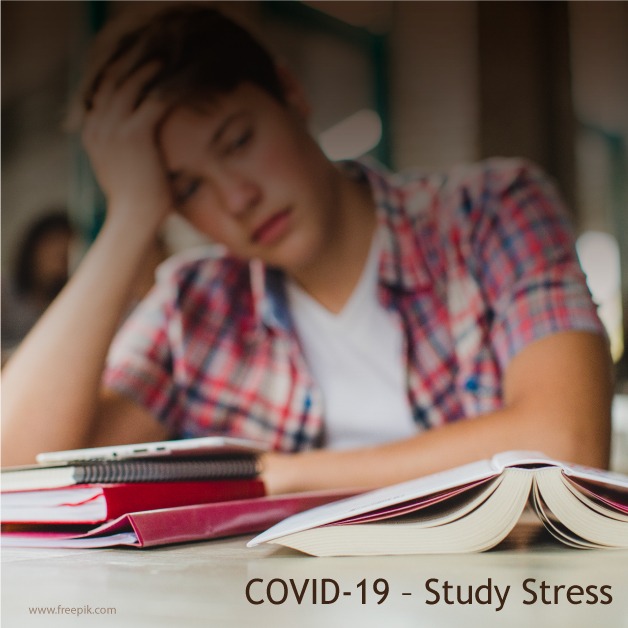Stress And Anxiety In The Pandemic
 The COVID-19 pandemic has disrupted life, business and education across the globe. The health crisis is something that the world has not seen in over a century. It is no secret that such a situation can result in extreme anxiety and stress. The situation has become even more severe as governments, medical experts and analysts appear to be overwhelmed. Given these circumstances, the fact that anxiety and stress levels are high among people comes as no surprise. It is important to understand that, the severity of the pandemic will diminish with time. Different nations will be peaking at different points in time. Being bogged down with mental stress, people could fill their minds with negativity. The pandemic has been raging for months now, there is no saying when it would ease up. Sustained stress levels can severely affect health. It is therefore important to keep the right mindset and keep the mind engaged with positive and relaxing ideas. This attitude does not involve breaking government laws (lockdowns, self isolation were required) or exposing oneself to danger. It is important to keep a positive attitude and even try, to use the time to do something constructive.
The COVID-19 pandemic has disrupted life, business and education across the globe. The health crisis is something that the world has not seen in over a century. It is no secret that such a situation can result in extreme anxiety and stress. The situation has become even more severe as governments, medical experts and analysts appear to be overwhelmed. Given these circumstances, the fact that anxiety and stress levels are high among people comes as no surprise. It is important to understand that, the severity of the pandemic will diminish with time. Different nations will be peaking at different points in time. Being bogged down with mental stress, people could fill their minds with negativity. The pandemic has been raging for months now, there is no saying when it would ease up. Sustained stress levels can severely affect health. It is therefore important to keep the right mindset and keep the mind engaged with positive and relaxing ideas. This attitude does not involve breaking government laws (lockdowns, self isolation were required) or exposing oneself to danger. It is important to keep a positive attitude and even try, to use the time to do something constructive.
COVID-19 Response And Rections: We really do not want to dilute the seriousness of the situation. This could be dangerous and cause people to take unnecessary risks. Below are the common reactions that could be triggered to the coronavirus scare.
- Feeling stressed and overwhelmed by the situation. Racing thoughts and panic situations.
- Overcome with sadness and sorry and losing interests in doing daily chores.
- It is scary to see how such a situation can get you disinterested in enjoyable activities.
- Headaches, fatigue, stomach upset and a general feeling of being uncomfortable.
- Feeling frustrated, depressed or irritable. This can lead to disturbed sleep.
- Difficulty concentrating on the task at hand. Feeling a sense of detachment.
While there is no way that you can ignore the importance of the pandemic, stay updated with happenings by all means but, keep your well being mind. Learn to receive information as gaining of knowledge and try not to dramatize everything and make it 'your centric'.
Coping With Stress And Anxiety: Being stressed breeds negativity, the mind keeps wandering towards challenges and hardship that cannot be controlled. Take a first step and try to put your mind into things that you can control. When making deliberate efforts to cope with your stress and anxiety, keep in mind that you should include measures to better your mental and physical health. Let's make a few suggestions here:
- Stay updated about what you can do to stay safe from the COVID-19 virus. As a responsible citizen, learn how you can prevent from spreading the virus to others. Keywords like social distancing, masking, hand hygiene are key essentials. Make sure that you understand and follow them.
- Let the thoughts come in and do not try to block them out of your mind. Instead stay involved in some creative activity. Indulge in artistic and creative activities like reading, painting etc.
- Make every effort to maintain your daily routine. Food, exercise, sleep, working and studying if you happen to be a student. If you are stuck in a lockdown, adapt your activities to the present scenario.
- Keep in touch with others, discuss your worries and share your ideas and knowledge. Remember that everyone is in the same boat, so make sure that you have the patience to listen to others.
- Make a contribution and this need not always be about money. Prepare a meal for an elderly person in your neighborhood, just take a few moments to meet or call them on the phone. These are things that give you a sense of belonging and feeling purposeful.
- Stay in the real world, do not believe that the the worst things will happen to you. Anxiety and depression often lead you to imagine the worst case scenarios. Keep yourself prepared and take complete precaution by all means but, don't be obsessed with negatives.
- Learn about the infection, treatment and effects of the virus - from reliable sources. Don't grab every piece of information thrown at you without caring for the source. For example, one fact about the COVID-19 infection is that, only a tiny percentage (around 5%) of the infected patients, need advanced medical care. More than 80% of COVID-19 patients, cure themselves.
- Social media is a great way to stay in touch but, a 24x7 focus on posts related to serious health issues can take its toll. Look for reputed services to update your knowledge and information. Keep specific hours during which you would spend time on social media channels and update/reply to messages.
At the end of the day it is always easy to talk and advise but. real life implementation can pose serious challenges. As you make an effort to move ahead with your life and become, better at coping with your stress and anxiety levels, give yourself time to adjust. Come to appreciate things that you can still do rather than, worry about those that are beyond your control.
